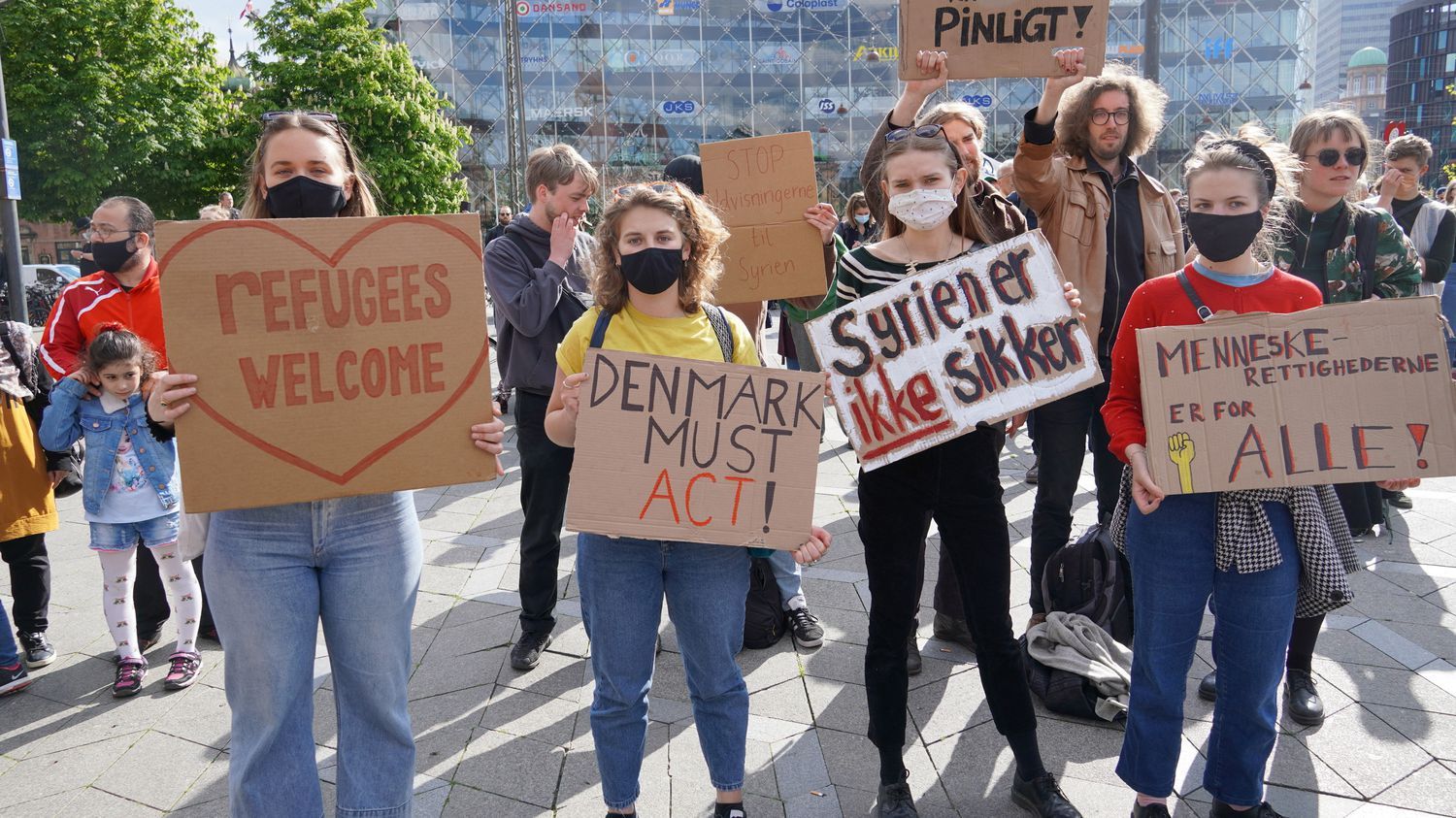Denmark has introduced sweeping sentencing reforms that could significantly impact the deportation of foreign nationals convicted of crimes. Announced on May 22, 2025, these reforms aim to impose harsher penalties for serious offenses, with a particular focus on violent crimes, rape, and domestic assault. While the government emphasizes a victim-centered approach, experts suggest that a hidden consequence of these reforms is the increased likelihood of deporting foreign offenders. This article delves into the details of the reforms, their implications for deportation, the underlying legal framework, and the broader societal and ethical debates surrounding these changes.
Overview of the Sentencing Reforms
The Danish government, led by Justice Minister Peter Hummelgaard, unveiled a comprehensive sentencing reform package designed to toughen penalties for a range of serious crimes. The reforms double sentences for severe violent crimes and increase penalties for rape and partner assault by 50 percent compared to current standards. Hummelgaard emphasized that the reforms prioritize the victim’s perspective, ensuring that convicted criminals face consequences that reflect the severity of their actions.
“The length of the punishment is an expression of how seriously the crime is viewed nationally,” Hummelgaard stated during the announcement.
While the government’s rhetoric focuses on justice for victims, the reforms have a broader impact, particularly on foreign nationals convicted of crimes. According to Law Professor Jens Elo Rytter, the increased sentence lengths could streamline the deportation process for foreign offenders, aligning with Denmark’s stringent immigration policies.
Deportation Under Danish Immigration Law
Danish immigration law has long included provisions for deporting foreign nationals convicted of crimes, even for relatively minor offenses. The current legal framework mandates deportation for foreign nationals who receive an unconditional prison sentence, unless such action violates Denmark’s international obligations, such as those outlined in the European Convention on Human Rights (ECHR).
The Role of the ECHR in Deportation Cases
The ECHR, particularly Article 8, guarantees the right to private and family life, which can complicate deportation proceedings. Courts must balance the severity of the crime against the individual’s human rights, including their ties to Denmark, such as family relationships or long-term residency. Professor Rytter explained to Politiken that the length of the sentence is a critical factor in this assessment. Longer sentences signal greater severity, tipping the scales in favor of deportation.
For instance, a foreign national with strong family ties in Denmark may avoid deportation for a minor offense with a short sentence. However, the proposed reforms, by significantly increasing sentence lengths, make it more likely that judges will prioritize the crime’s severity over human rights considerations.
Proposed Changes to Deportation Rules
In addition to the sentencing reforms, Immigration and Integration Minister Kaare Dybvad has proposed changes to Denmark’s deportation rules. In March 2025, Dybvad introduced a bill to eliminate a rule that makes deportation more difficult the longer a foreign national has resided in Denmark. Under the current system, long-term residents are afforded greater protection against deportation. Dybvad’s proposal seeks to remove this safeguard, arguing that only international human rights obligations should determine deportation eligibility for those serving unconditional prison sentences.
This dual approach—harsher sentencing and relaxed deportation rules—creates a legal environment where foreign nationals convicted of crimes face a higher risk of expulsion, regardless of their ties to Denmark.
Implications of the Reforms
The sentencing reforms and proposed deportation rule changes have far-reaching implications, both for Denmark’s criminal justice system and its immigrant communities. Below, we explore the potential consequences in greater detail.
Impact on Foreign Nationals
Foreign nationals, particularly those from non-EU countries, are disproportionately affected by these reforms. Denmark’s immigrant population, which includes refugees, asylum seekers, and economic migrants, often faces heightened scrutiny under the country’s immigration policies. The reforms could lead to an increase in deportations, even for individuals who have lived in Denmark for many years and have established families or careers.
Critics argue that this approach risks unfairly targeting immigrants, perpetuating a narrative that equates foreign nationality with criminality. Human rights advocates have raised concerns that the reforms prioritize punitive measures over rehabilitation, potentially undermining Denmark’s commitment to fair and equitable justice.
Judicial Balancing Act
Judges play a pivotal role in deportation cases, as they must weigh the crime’s severity against the individual’s human rights. The increased sentence lengths introduced by the reforms shift this balance, making it more likely that deportation will be deemed proportionate. For example, a foreign national convicted of a violent crime that now carries a doubled sentence may find it harder to argue that their right to family life outweighs the state’s interest in public safety.
Rytter noted that this shift could lead to a more standardized approach to deportation, reducing judicial discretion. While this may streamline the process, it raises questions about whether individual circumstances—such as the offender’s integration into Danish society or their family obligations—will receive adequate consideration.
Hidden Truths and Unintended Consequences
While the government has not explicitly highlighted the deportation implications of the sentencing reforms, experts like Rytter have pointed out that these changes are likely to have a significant impact. This lack of transparency raises questions about the government’s intentions and whether the reforms are designed to indirectly tighten immigration controls.
Political Context
Denmark has a history of strict immigration policies, with successive governments adopting measures to limit immigration and promote integration. The current reforms align with this trend, reflecting a broader political agenda to deter crime among foreign nationals and signal a tough stance on immigration. The Social Democratic government, led by Prime Minister Mette Frederiksen, has faced criticism for adopting policies that echo those of right-wing parties, particularly on immigration and integration.
The proposed changes to deportation rules, combined with harsher sentencing, suggest a deliberate strategy to make Denmark less appealing to foreign nationals who may commit crimes. However, this approach risks alienating immigrant communities and fostering a sense of exclusion.
Social and Ethical Considerations
The reforms also raise ethical questions about fairness and proportionality. Deporting a foreign national who has lived in Denmark for decades, for instance, can disrupt families and communities. Human rights organizations argue that such measures may violate the spirit of international conventions, even if they technically comply with legal obligations.
Moreover, the focus on deportation may divert attention from addressing the root causes of crime, such as socioeconomic inequality or lack of integration support. Research from the Danish Institute for Human Rights suggests that immigrants often face systemic barriers, including discrimination in employment and housing, which can contribute to social marginalization and, in some cases, criminal behavior.
Research and Comparative Analysis
To understand the broader context of Denmark’s reforms, it is useful to examine similar policies in other European countries and the available research on deportation and sentencing.
European Trends in Deportation Policies
Denmark is not alone in tightening deportation rules for foreign criminals. Countries like Sweden, Norway, and the Netherlands have also introduced measures to expedite the deportation of non-citizens convicted of crimes. For example, Sweden’s 2022 immigration reforms allow for the deportation of foreign nationals convicted of offenses carrying sentences as short as six months, provided human rights obligations are met.
A 2023 study by the European Migration Network found that most EU countries prioritize deportation for serious crimes but vary in their application of human rights considerations. Denmark’s approach, with its emphasis on longer sentences and fewer protections for long-term residents, places it among the stricter end of the spectrum.
Impact of Harsher Sentencing
Research on the effects of harsher sentencing is mixed. A 2020 study by the University of Copenhagen found that longer prison sentences do not necessarily deter crime but can increase recidivism rates by disrupting social ties and rehabilitation opportunities. For foreign nationals, the threat of deportation adds an additional layer of punishment, potentially exacerbating feelings of alienation.
Conversely, proponents of harsher sentencing argue that it sends a strong message about the consequences of criminal behavior, particularly for serious offenses. The Danish government’s focus on victims aligns with this perspective, emphasizing retribution over rehabilitation.
Public and Political Reactions
The sentencing reforms have sparked a range of reactions from the public, political parties, and advocacy groups. Supporters, including conservative and populist parties, argue that the reforms are necessary to protect Danish society and deter crime among foreign nationals. Critics, including human rights organizations and some left-leaning groups, contend that the reforms disproportionately target immigrants and undermine Denmark’s commitment to human rights.
Public opinion, as reflected in recent X posts, is divided. Some users praise the government for taking a hard line on crime, while others express concern about the potential for discrimination and the erosion of human rights protections. A post from a Danish user on May 23, 2025, stated:
“Finally, a government that prioritizes victims over criminals. Deportation should be swift for those who break our laws.”
In contrast, another user wrote:
“These reforms just target foreigners and ignore the real issues like poverty and integration. Denmark is better than this.”
Future Outlook
As Denmark moves forward with its sentencing and deportation reforms, several questions remain. Will the reforms achieve their intended goal of reducing crime, or will they simply increase deportations without addressing underlying issues? How will courts navigate the tension between harsher sentences and human rights obligations? And what impact will these changes have on Denmark’s immigrant communities and its reputation as a progressive, inclusive society?
Potential Challenges
Implementing the reforms will require careful oversight to ensure compliance with international law. The ECHR and other human rights frameworks will continue to serve as a check on Denmark’s deportation policies, potentially leading to legal challenges. Additionally, the reforms may strain Denmark’s relationships with immigrant communities, many of whom already feel marginalized.
Opportunities for Dialogue
The reforms also present an opportunity for Denmark to engage in a broader conversation about crime, immigration, and integration. By addressing systemic issues such as discrimination and socioeconomic inequality, the government could reduce crime rates and foster greater social cohesion, rather than relying solely on punitive measures.
Conclusion
Denmark’s sentencing reforms, announced on May 22, 2025, mark a significant shift in the country’s approach to criminal justice and immigration. By doubling sentences for violent crimes and increasing penalties for other serious offenses, the government aims to prioritize victims and deter crime. However, the reforms also have a hidden consequence: facilitating the deportation of foreign nationals convicted of crimes. Combined with proposed changes to deportation rules, these measures reflect Denmark’s broader push to tighten immigration controls.
While the reforms may achieve their goal of streamlining deportations, they raise important questions about fairness, human rights, and the long-term impact on Denmark’s diverse communities. As the country navigates these changes, it must balance its commitment to justice with its obligations to uphold human rights and foster an inclusive society. The coming years will reveal whether these reforms strengthen Denmark’s criminal justice system or deepen divisions within its society.



















0 Comments